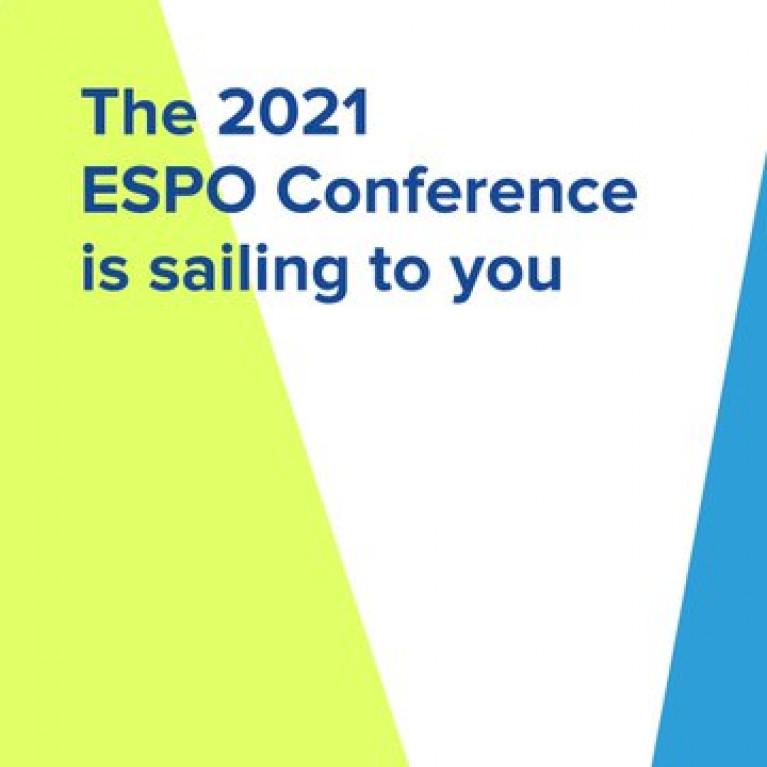Displaying items by tag: May 25, 26 & 28th
This year's European Sea Port Organisation's annual Conference will differ as the format involves a 'Regatta' crossing Europe from South to North.
The Conference Regatta sets sail in the Port of Valencia on Tuesday 25 May. From there onwards it sails off to Ghent, where we will be welcomed by our second host, North Sea Port, on Wednesday 26 May.
Our last port of call will be the Port of Oslo, where we race to the finish line on Friday 28 May.
The draft programme and all practical information are now available on the conference website. Together with its three fantastic host ports, ESPO is developing a special format which offers a hybrid formula, consisting of virtual and in-person attendance. ESPO invites you to pre-register now to be sure you are part of this exceptional event.
“We are happy to be able to present you a unique format for this 17th edition of the ESPO Conference. With the active support of our three hosts, Port of Valencia, North Sea Port and Port of Oslo, we have developed a format which will allow everybody to attend at least virtually and , by “sailing” around, we hope to be able to open for in-person attendance in the three venues. Both in content and in format we guarantee an exceptional event. Even for virtual participants, I promise, this won’t be just a webinar. We look forward to welcome both our loyal guests and newcomers to this annual highlight of the European port industry,” says ESPO’s Secretary General Isabelle Ryckbost.
The theme of the ESPO Conference Regatta 2021 is “Europe’s ports at the crossroads of transitions”.
After a year of disruption, Europe is preparing for a green recovery, a plan that aims at combining the need to recover with the delivery of the Green Deal, Europe’s flagship project to become the world’s first net-zero emission area by 2050. At the same time, Europe’s economy is getting ready for a digital future. Being at the centre of different strategies, Europe’s ports can be a partner in building a stronger and better Europe. They can develop towards becoming real engines of growth and green post-COVID recovery. What do ports have to offer? Which tools and policy ingredients are needed to boost this development? How to engage all partners in the port ecosystem?
On Tuesday 25 May, the first Conference day, after a welcome by the Commissioner for Transport Adina-Ioana Vălean, the ESPO Conference Regatta will set sail with an impressive line-up of inspirational speeches and presentations exploring both the future of Europe and the future of Europe’s ports. The presentation of the joint Deloitte-ESPO study on the changing role of European ports is another highlight of day one. Based on extensive exchanges with Europe’s ports, this study will identify drivers and trends which explain the changing role of Europe’s ports. The presentation of the study will be followed by a high-level debate with ports and stakeholders.
On Wednesday 26 May, the second Conference day, it is time to discuss politics! We will welcome a series of high-level EU policymakers from the European Investment Bank, the European Commission and the European Parliament. Topics of discussion will be Europe’s Recovery and Resilience policy, the review of the Trans-European Transport policy, the Green Deal and Europe’s mobility strategy. This second day of the ESPO Regatta will end with a debate on hydrogen: is it just a hype or a real breakthrough in the whole Green Deal delivery?
On Friday 28 May, the final day of the ESPO Conference Regatta, the green deal and sustainability are both on the agenda. We will depart from the Norwegian know-how and experience to discuss how ports can become key players in future zero emission logistics chains and how to green the shipping sector. We will also debate zero pollution ports with stakeholders and experts from all around Europe. In Oslo, ESPO will also present its new Green Guide giving guidance to Europe’s ports on how to contribute to a green future.
So reasons enough to join us for this special ESPO Conference Regatta and to fill in the pre-registration form now! The ESPO Conference Regatta 2021 comes with exceptionally interesting registration fees, including a family rate for 5+ attendees from one company or port. By pre-registering and indicating your interest now in this ESPO Conference Regatta 2021, you help us in getting the challenging logistics of this exceptional format right.
The official registrations will open as from 10 April. You will then be able to confirm/adapt your registration by providing us more details concerning your attendance.
For more information and the full programme, click here.






























































